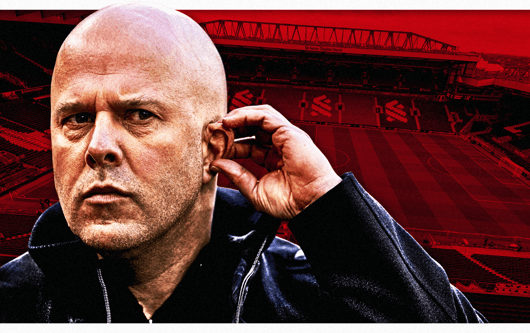Erling Haaland will avoid Bundesliga tax at Man City

Erling Haaland has swapped Borussia Dortmund for Manchester City in what looks like a snip at €60 million. But can City fans expect him to repeat his prolific scoring rate of 22 goals in 24 Bundesliga games from last season?
Haaland is the latest big-name player to make a blockbuster move from the Bundesliga to the Premier League, following the likes of former Dortmund teammate Jadon Sancho (€85m to Manchester United in 2021), and Timo Werner (€53m from RB Leipzig to Chelsea in 2020).
The prodigious Norwegian is pegged to be the long-term successor to Sergio Aguero as Man City's No.9, and the excitement around his arrival - with City fending off interest from Real Madrid, Bayern Munich and the like - is understandable. After all, this is a 21-year-old who already has 93 top-flight goals to his name, as well as 23 strikes in the Champions League.
A hulking 6'5" striker with a ferocious left-foot shot, Haaland is also just as much pace as power, having set the Bundesliga's fastest speed at 22.39 miles per hour the season before last. Why would anyone doubt him?
He's here and he's beautiful!
Man City have finally unveiled Erling Haaland 🤩 pic.twitter.com/xYz4wvrUZU
— Football Transfers (@Transfersdotcom) June 13, 2022
What is the Bundesliga tax?
The Bundesliga tax was originally an idea put forward by fans - particularly on Twitter - that players have a harder time contributing goals and assists in England's top flight than they do Germany's.
The experience of recent arrivals such as Werner and Sancho appeared to lend weight to such claims.
Werner returned 28 goals and eight assists in his final Bundesliga campaign at a rate of one every 78 minutes; but contributed just six goals and 12 assists at a rate of one every 145 minutes in his first season in England.

For Sancho, the same measurement throws up eight goals and 12 assists for an attacking contribution every 104 minutes at BVB, set against three goals and three assists every 316 minutes for United.
Such data might appear to be anecdotal, but professional football analysts have since applied creative output measurements as well as possession value models to a swathe of players who have made the same journey as Werner and Sancho.
And it would appear that on average, a player arriving in the Premier League from the Bundesliga can expect an xG of -0.07 lower over the course of a season and a 17 per cent decrease in overall output.
“The Bundesliga tax might be real” section uses stats to indicate that anyone’s xG would drop by 0.07 moving from the Bundesliga to the Premier League.
That’d make Haaland’s 0.64 per 90. Which would be 24 goals. That would’ve won him the PL Golden Boot ever year since 2018. https://t.co/gSBRqpvu2d
— Ronan Murphy (@swearimnotpaul) June 13, 2022
Can Haaland break the mould?
Haaland certainly looks to have the raw physical ability and goalscoring credentials to maintain his impressive attacking stats. As well as his recent Bundesliga hauls, his 23 Champions League goals have been plundered at a barely fathomable rate of one every 64 minutes - including strikes against Liverpool, PSG (twice) and Sevilla, to name a few.
He will also be playing in front of another elite-level operator who has seen their attacking output go up since leaving Germany for England: Kevin De Bruyne. De Bruyne set a single-season record of 21 assists with Wolfsburg in 2014/15. Yet the Belgian's best season with the Wolves saw him put up 0.89 goal involvements per game, while last term he managed 0.94 with City.
The fact De Bruyne is one of the players contributing to the English champions' league-high 101 big chances created last term can only help the goal-hungry Haaland.
He has scored some wonderful goals during his #Bundesliga career, but which of these 5️⃣ @ErlingHaaland strikes for @BlackYellow would you rank as his best? 🐝 pic.twitter.com/5wiGk0GkIJ
— Bundesliga English (@Bundesliga_EN) May 8, 2022
Why would anybody doubt Haaland?
That is not to say you should bet the house on Haaland being the Premier League's top scorer next season. Coach Pep Guardiola has a patchy record with out-and-out strikers at best. His run-ins with Zlatan Ibrahimovic at Barcelona are famous, and while that may also seem anecdotal, how many centre-forwards have truly flourished under the Spaniard?
Robert Lewandowski has been inimitable at Bayern, but it is easy to forget that his record five goals in nine minutes against Wolfsburg in September 2015 were scored after Guardiola brought him off the bench with nearly an hour gone. Aguero - City's record goalscorer - was also among the substitutes in the Champions League final against Chelsea the season before last, in what would have been his final City start.
Pep has won 32 major honours in a glittering 14-year managerial career, and more strikers than Lewandowski and Aguero - who themselves come with an asterisk - might be expected to have thrived under the tactician. That could be a source of concern for Haaland.
Bundesliga tax or tactics?
The conversation around the Bundesliga tax has also thus far focused, largely, on whether it exists or not. If we assume it does, perhaps the next question should be why?
Perhaps naturally for the home of gegenpressing - pressing immediately after the ball is lost and winning it back as high up the pitch as possible - the Bundesliga sees more goals scored per game than any of Europe's other five major leagues per UEFA coefficient, and has done for many years.
Despite Dortmund's lofty reputation, Bundesliga teams are also happy to attack BVB. Champions Bayern are the only side who consistently see the proverbial bus parked in front of them. Haaland had plenty of space to put his explosive pace to good use on the counter last term.
City are a side who dominate possession, meanwhile, typically enjoying nearly 68 per cent of it in games.
Haaland will have to find new solutions in attack. He is young and malleable enough to do so, but if he can't repeat last season's 87 minutes per goal, it won't be the tax's fault.





















